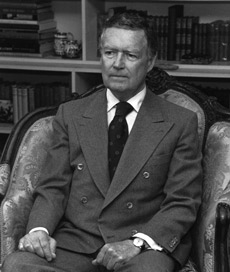|
Courts and Tribunals
International Court of Justice
Judicial Activism and the International Court of Justice
Outline of Lecture
A. Legal Instruments
Charter of the United Nations and Statute of the International Court of Justice, San Francisco, 26 June 1945.
Basic Law for the Federal Republic of Germany, Bonn, 8 May 1949. B. Jurisprudence
Permanent Court of International Justice, Austro-German Customs Union, Advisory Opinion, P.C.I.J. Series A/B, No. 41, p. 59.
International Court of Justice, International Status of South-West Africa, Advisory Opinion of 11 July 1950, I.C.J. Reports 1950, p. 128. International Court of Justice, South West Africa Cases (Ethiopia v. South Africa; Liberia v. South Africa), Preliminary Objections, Judgment of 21 December 1962, I.C.J. Reports 1962, p. 319. International Court of Justice, South West Africa, Second Phase, Judgment, I.C.J. Reports 1966, p. 6. International Court of Justice, Nuclear Tests (Australia v. France), Judgment, I.C.J. Reports 1974, p. 253. International Court of Justice, Aegean Sea Continental Shelf, Judgment, I.C.J. Reports 1978, p. 3. International Court of Justice, United States Diplomatic and Consular Staff in Tehran, Judgment, I.C.J. Reports 1980, p. 3. International Court of Justice, Military and Paramilitary Activities in and against Nicaragua (Nicaragua v. United States of America), Merits, Judgment, I.C.J. Reports 1986, p. 14. International Court of Justice, Questions of Interpretation and Application of the 1971 Montreal Convention arising from the Aerial Incident at Lockerbie (Libyan Arab Jamahiriya v. United States of America), Preliminary Objections, Judgment, I.C.J. Reports 1998, p. 115. International Court of Justice, Accordance with International Law of the Unilateral Declaration of Independence in Respect of Kosovo, Advisory Opinion, I.C.J. Reports 2010, p. 403. C. Doctrine
K. D. Kmiec, “The Origin and Current Meanings of ‘Judicial Activism’”, California Law Review, vol. 92, 2004, pp. 1441 et seq., pp. 1452-1455.
A. G. Koroma, “International Law and Multiculturalism”, in S. Yee/J.-Y. Morin (eds.), Multiculturalism and International Law, Martinus Nijhoff Publishers, London/Boston, 2009, p. 79. H. Lauterpacht, The Development of International Law by the International Court, revised edition, Steven & Sons Limited, London, 1958. G. Leibholz, “Legal Philosophy and the Federal Constitutional Court”, in E. McWhinney, Constitutionalism in Germany and the Federal Constitutional Court, A. W. Sythoff, Leyden, 1962, pp. 11-20. E. McWhinney, Judicial Review in the English-speaking World, 4th edition, University of Toronto Press, Toronto, 1969. E. McWhinney, The World Court and the Contemporary International Law-Making Process, Sijthoff & Noorhoff International Publishers, Alphen aan den Rijn, 1979. E. McWhinney, The International Court of Justice and the Western Tradition of International Law, The Paul Martin Lecture Series, Martinus Nijhoff Publishers, Dordrecht, 1987. E. McWhinney, Judicial Settlement of International Disputes. Jurisdiction, Justiciability and Judicial Law-Making, Hague Academy of International Law, 1990. E. McWhinney, Judge Shigeru Oda and the Progressive Development of International Law. Opinions on the ICJ, 1976-1992, Martinus Nijhoff Publishers, Dordrecht/Boston/London, 1993. E. McWhinney, Judge Manfred Lachs and Judicial Law-Making. Opinions on the ICJ, 1967-1993, Kluwer Law International, The Hague/Cambridge, 1995. E. McWhinney/ M. Kawano, Judge Shigeru Oda and the Path to Judicial Wisdom. Opinions on the ICJ, 1993-2003, Koninklijke Brill NV, Leiden, 2006. J. G. Merrills, Judge Sir Gerald Fitzmaurice and the Discipline of International Law. Opinions on the ICJ, 1961-1973, Kluwer Law International, The Hague/Cambridge/Dordrecht, 1998. S. Rosenne, The World Court. What it is and how it works, A.W. Sijthoff, Leiden, 1962. V. S. Vereshchetin, “Cultural and Ideological Pluralism and International Law”, in S. Yee/J.-Y. Morin (eds.), Multiculturalism and International Law, Martinus Nijhoff Publishers, London/Boston, 2009, p. 113. C. G. Weeramantry, Islamic Jurisprudence: Some International Perspectives, Macmillan’s, London, St. Martin’s Press, New York, 1989. C. G. Weeramantry, “The International Court of Justice in the Age of Multiculturalism”, Indian Journal of International Law, vol. 36, 1996, p. 17. |

